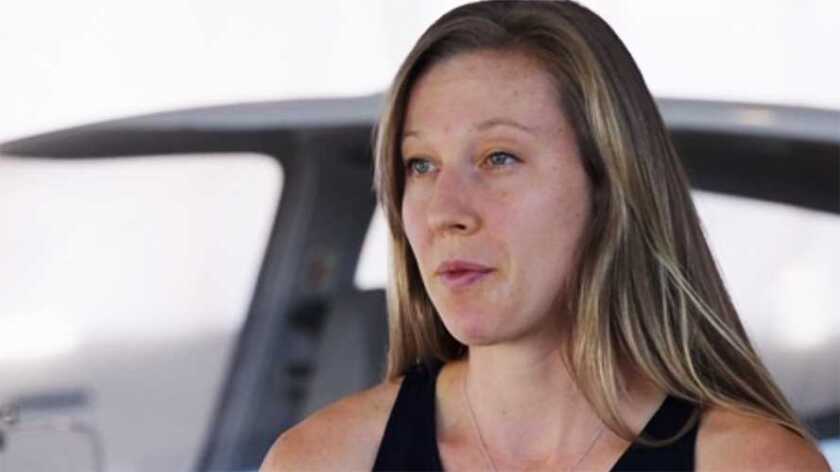According to the California-based company, backers include Craft Ventures and Sky Dayton with participation from Social Capital, 4DX Ventures and NJF Capital.
Craft Ventures is an early-stage investor whose portfolio includes Reddit and SpaceX. Sky Dayton was founder of EarthLink, one of the earliest big ISPs in the US, and Boingo.
“The capital provides us with the resources to build and scale Swarm beyond our initial accomplishments,” said CEO Sara Spangelo (pictured). “In less than two years, we have designed, built, and launched seven operational satellites into low earth orbit, and we’re just getting started.”
Each of Swarm’s satellites will be a quarter of the standard size for cubesats, 10 × 10 × 10cm, making them 2.5 × 10 × 10cm.
The company will use the money to accelerate software and hardware integration for internet of things (IoT) deployments, to hire more staff and to launch its satellites. It already has seven in orbit: the latest three went up on via SpaceX in December 2018.
“We’ve partnered with dozens of companies – from early-stage start-ups to Fortune 100 enterprise – with whom we have completed successful pilot tests in agriculture, maritime, ground transportation, and text messaging services,” said Spangelo, an aeronautical engineer who worked at NASA’s Jet Propulsion Laboratory.
She described the $25 million as “a meaningfully sizeable investment for a Series A in the commercial space industry”.
Applications Swarm plans to develop include diagnostics and emergency messages from connected vehicles; agriculture sensors in farms outside of cellular range; shipping containers and asset tracking across oceans; and water monitoring and smart meter reporting in remote communities. Swarm also wants to run a text messaging service for rural and remote areas.
In January Swarm said it had teamed up with Autonomic to make its Transportation Mobility Cloud (TMC) available more widely, “anywhere a satellite can fly,” said Spangelo.
Meanwhile Australian-registered, UK-based Sky & Space Global says it has raised $12 million for its project, to build a network of 200 nano-satellites to the Earth’s equatorial belt.
The funds are to be used to launch the first batch of the company’s Pearls constellation of nano-satellites network, with Virgin Orbit, due by mid-2019. The company plans to raise another $3-$4 million.
“We have undertaken this round of financing at a crucial time for the company, as we prepare to launch our first batch of Pearls nano-satellites into space,” said Meir Moalem, CEO of Sky & Space Global.
“The support we have received is indicative of the confidence the market has in our ability to deliver on milestones and achieve the objectives we have set out for the company.”






